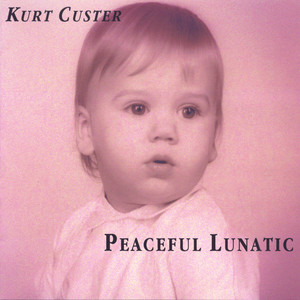
- 歌曲
- 时长
简介
Kurt Custer Biography "I believe drums were made to be hit hard." Kurt Custer's journey into the world of professional music seemed destined. California-born in 1964 into a musically inclined family, he grabbed his first pair of drumsticks when he was still in diapers. By his fourth birthday, he was already keeping steady time to 45rpm sides of 1960's pop and rock bestsellers. His talent evident, Kurt began amazing family and friends with hi impeccable timing, dazzling creativity and overall drum-kit expertise. Among his earliest influences, Custer lists Gene Krupa and Buddy Rich-whose virtuoso performance on the "Tonight Show" he remembers rarely missing. As his exposure to popular music grew, so did his appreciation for the styling of Ringo Starr, Mitch Mitchell, Ginger Baker, John Bonham, Roger Taylor, Stewart Copeland and others. "I played a lot like Keith Moon and Mitch Mitchell at first," he recalls. "There's nothing wrong with that if you can add something to the music." Over the past 20 years, Kurt's played professionally, gaining experience and honing his skills. Custer has toured extensively in North America and overseas. His first national recognition came with the southern-California band Little America, which recorded two albums for Geffen Records (Little America (1987), Fairgrounds (1989). During this time, his talent came to the critically acclaimed album Copperhead Road (1988), which subsequently went Gold in the U.S. and Platinum in Canada. Soon after, members of the southern rock group Lynyrd Skynyrd recruited Custer to perform on their new recording and worldwide tour. His rock-solid and expressive drumming helped the band re-establish its memorable sound on the Atlantic releases Lynyrd Skynyrd 1991 and The Last Rebel (1993). With Skynyrd, Kurt's creative input extended beyond the drum set. On both recordings, veteran producer Tom Dowd worked with Kurt in arranging the songs,along with the greatest guitar player in the world, Ed King. The Dowd-Custer-King arranged "1991" has since achieved U.S. Gold status. Throughout his professional associations, Kurt has continued to adapt his drumming approach to meet the needs of the music. In short, his musicianship has matured. "I'm more solid than I used to be," he says. "Straightforward, not elaborate. Some people call me a mathematical drummer. Maybe that's true. I'm deliberate where I place my fills and how I play them. Laying down a groove for a song is more important than just being flashy." Custer left Skynyrd in 1994, and settled in Nashville to continue developing his abilities as a songwriter, arranger, producer, vocalist and multi-instrumentalist. He and longtime partner Andy Logan combined efforts on the self-titled Custer &Logan (1994), writing, producing engineering and performing all tracks. They also played locally on the Nashville club scene. In 1996, Steve Earle returned to the business after a lengthy personal leave and again contacted Custer, asking him to rejoin his group on a new recording and world tour. On Earle's I Feel Alright (1996), Kurt's signature drumming and backing vocals come through with distinction. With his ironically titled new CD Peaceful Lunatic, the multi-talented Custer blends a diversity of musical influences and life experiences into a style and voice uniquely his. What emerges is a meticulously crafted self-portrait; creative, revealing, confident and immensely satisfying. Kurt is firmly in command at the helm of Peaceful Lunatic. In addition to producing and engineering the project, he arranged and wrote or co-wrote every tune and performed all the musical parts and lead vocals along with Logan. Lyrically, Peaceful Lunatic covers a range of expression, from fondly reflective and humorous, to folksy, confessional and insightful and insightful. Similarly, the intricately structured arrangements display Custer's Continuing growth as a producer and songwriter. His melodic treatments feature tonal, rhythmic and phrasing variety, enhanced by rich vocal and instrumental harmonies. The underlying foundation of the music on the CD is, of course, Kurt's drum work. It's sharper, more articulate and supportive, without sacrificing the expressiveness or individuality that are the hallmarks of his playing. "If you can be creative and add expression, it adds nuance and enhances the song. Drums should accentuate the vocal," he believes. "I do what's best for the song. Whatever the song lends itself to, that's what I play. It could be straight-ahead rock, or something intricate, urgent or laid back. I'm a song-oriented drummer who likes to be flashy at times. That's the best description of my playing."



